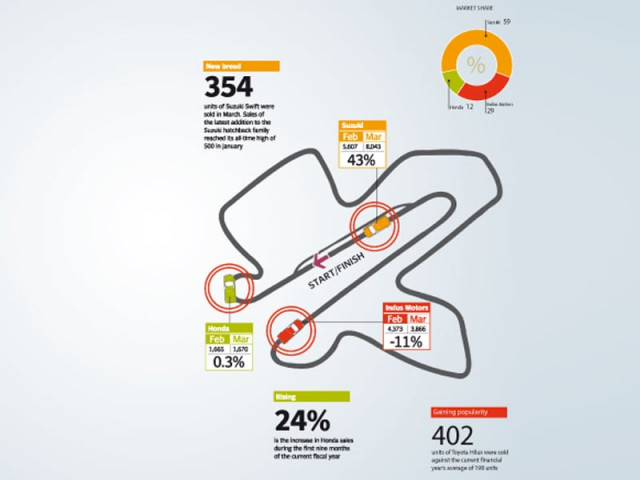Businesses hit by ethnic and sectarian violence
Continuous sectarian and ethnic target killings in Karachi have worried businessmen from big industrialists to small traders.

Businesses hit by ethnic and sectarian violence
Shahid Ismail, Chairman Federal B Area Association of Trade and Industry (FBATI), said that continuous killings in Karachi have badly affected the business environment.
Ismail, who works in an industrial zone right in the middle of the city, which shares boundaries with the troubled areas, said “we condemn the violence in any form especially the worst ethnic and sectarian target killings.”
“Since our industrial zone touches Sohrab Goth and Ancholi, the two most troubled areas over the last five days, we are operating under huge pressure,” he said, adding that the industrialists are facing problems in day-to-day running of their businesses.
There are more than 2,000 industries in the Federal B Area industrial zone and all have been affected by the wave of violence and killing over the last two weeks. Many containers could not be shipped on Monday owing to the uncertain situation, Ismail added.
“Vehicles are continuously being torched while aerial firing has made factory workers worried, especially women, many of whom had been unable to come to factories last week,” he added.
Idrees Gigi, Director Gigi Industries (Pvt) Limited, said the industrial zone of Federal B Area was the worst affected business area during the violence. Gigi, also the ex-chairman of FBATI, said that most of the labour in the industrial zone comes from areas which have been affected by recent killings, which led to reduced attendance of the workers.
Younus Khamisani, CEO MK International, said that his industry has also been affected by the bad law and order situation.
Khamisani, who is also ex-chairman of the North Karachi Association of Trade and Industry (NKATI), said business visitors were avoiding coming to industries while the movement of industrialists has also been limited. “The worst of all is the psychological factor which is killing the business atmosphere of the city,” Khamisani said.
Both North Karachi and Federal B Area are in close proximity to the troubled areas which are in or around the central district of Karachi.
Salim Parekh, Chairman SITE Association of Industry, one of the biggest industrial zones of Pakistan, said that the conditions in which the industrialists are operating are not conducive to business.
“Every time Karachi is hit by violence, the industrial zone is fraught with rumours and workers try to reach their homes as soon as they can. This is bad for industrial production,” Parekh said.
Every day, the violence results in absence of labourers, delay in container shipments and loss of industrial production, he added.
“We have not asked the provincial government to arrest the responsible, but now we think that the situation is going from bad to worse,” said Parekh.
Mehmood Hamid, President Karachi Division of the All Pakistan Organisation of Small Traders and Cottage Industries, commented that traders and shopkeepers have been badly affected by the violence.
“Shopkeepers are in constant trouble. They are the first victims because with every killing and vehicle torching the shops of the affected area are forced to close for a day or two, resulting in massive losses,” he added.
With the increase in target killings, the city has seen more shops closing and a notable decline in the number of public transport available on roads.
Areas like Ghareebabad, Nazimabad, Azizabad, Ancholi and Sohrab Goth are all under the grip of violence. All these areas saw 50 to 70 per cent of their small and large shops shut down. “This has caused losses worth millions of rupees to the shopkeepers,” Hamid added.
Published in the Express Tribune, June 16th, 2010.



















COMMENTS
Comments are moderated and generally will be posted if they are on-topic and not abusive.
For more information, please see our Comments FAQ